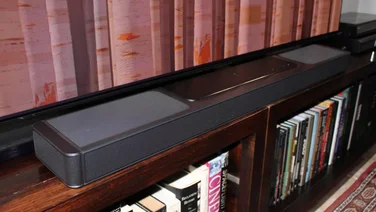To help us provide you with free impartial advice, we may earn a commission if you buy through links on our site. Learn more

It’s been a huge year for the TV industry. And when we say huge, we mean it literally, with the popularity of screen size options over 75in skyrocketing. Enormous, blindingly bright and surprisingly affordable goggleboxes were unthinkable a decade ago, but TV technology has advanced rapidly in a short space of time.
We’ve seen leaps forward in brightness, wider colour gamut coverage, more accurate colour reproduction, improved contrast control, faster refresh rates and a whole host of AI innovations to enhance our viewing experience. On top of all that, TVs are coming in increasingly slimmer, more space-efficient designs despite packing beefier and more immersive sound systems.
With a long list of big-name manufacturers battling for supremacy, the level of performance across the TVs we’ve tested over the past 12 months has been staggeringly high. We’ll be doling out trophies to best-in-class television sets at our Product of the Year awards in January, but in the meantime, we wanted to celebrate the brands that matter most to consumers.
TV Brand Awards 2025: At a glance
| Category | Winner | Highly Commended |
|---|---|---|
| TV Brand of the Year | ||
| Value TV Brand of the Year | ||
| Most Recommended | ||
| Best for Picture Quality | ||
| Best for Smart Features | ||
| Best for Sound Quality | ||
| Best for Gaming | ||
| Best for Streaming | ||
| Best All-in-One TV Experience |
We surveyed a representative sample of 1,000 UK residents aged 18 or over who had purchased a TV in the last 12 months, asking questions about their experiences. The questions covered sound and picture quality, gaming credentials, smart features and value for money.
Having meticulously analysed the response data, we’ve crowned winners and highly commended brands in nine categories. Unsurprisingly, there are some household names in there, but a couple of the winners may surprise you. If you’re considering buying a new television and need a steer, or simply want to discover more about which TV brands UK consumers gravitate towards and how they rate their experiences, read on.
TV Brand of the Year
Winner: LG
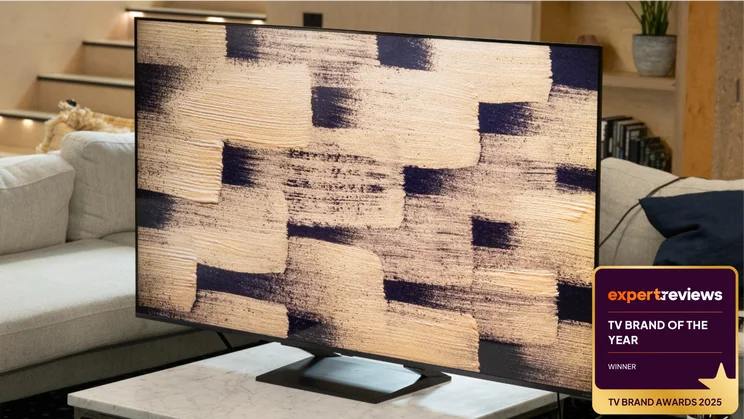
LG is one of the most prominent and well-respected electronics brands in the world, and makes TVs that cater for every budget and screen size requirement. So, it’s not a massive surprise to see it named as the best TV brand overall.
To identify a winner in this category, we analysed data from four of our survey questions, which covered perceived value for money, picture and sound quality, and how likely someone was to recommend a TV brand to friends and family.
We can certainly vouch for LG’s ability to deliver a stunning TV experience, too, with the LG G5 demonstrating its mastery of OLED panel technology, and the LG QNED93 offering a punchy, bright and accurate Mini LED alternative.
Highly Commended: Samsung
Despite being pipped to the top prize by its South Korean rival, LG, Samsung garnered highly favourable responses across the four questions that contributed to the best brand overall award.
This won’t come as a shock to anyone who pays any attention to the TV industry. Samsung is everywhere and has one of the most extensive ranges around. Its S95F is one of the best OLED sets on the market, the QN900F is an 8K TV par excellence, while its Crystal UHD and QLED models offer more affordable access to an engaging picture and sound experience.
Value TV Brand of the Year
Winner: Hisense
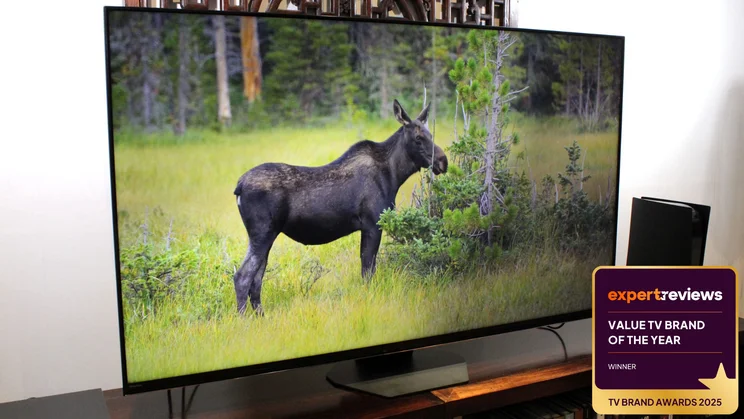
Hisense’s star is on the rise in the UK, and consumers are clearly delighted with the value for money they’re getting from the Chinese brand. With a total satisfaction score of 86%, it finished a decent margin ahead of LG (83%) as the top TV manufacturer per pound spent.
We’ve yet to review any models from its core 2025 range, but last year’s Hisense U8N, U7N and E7N Pro balanced performance, features and price adeptly. Hisense has undoubtedly benefited from its partnership with Freely, too, with all of its 4K TVs coming with the IPTV service integrated – a huge boon to lovers of UK TV content.
Highly Commended: LG
LG is best known for its OLED televisions and for good reason: it makes some of the finest self-emissive displays around. The LG G5 and C5 are fantastic examples of its prowess, but are by no means cheap. However, it’s a case of you get what you pay for: top-notch picture quality and fantastic gaming support, along with LG’s comprehensive webOS smart platform.
WebOS is available on every model in the brand’s lineup and, along with LG sound and picture processing technologies that trickle down from premium sets, is a big draw for consumers looking to buy an affordable TV from an established brand.
Best for Picture Quality
Winner: Hisense
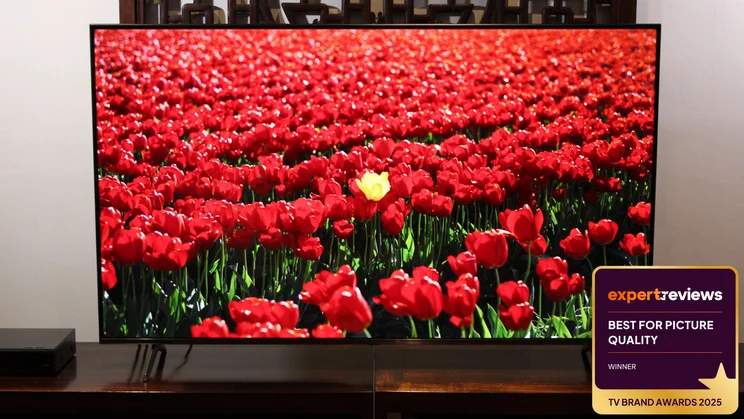
While all of the survey questions we posed prompted subjective responses, the topic of TV picture quality is perhaps the most divisive. Some consumers favour pinpoint greyscale and colour accuracy, while others want searingly bright images with hyper-saturated colours and won’t change the picture preset after getting the TV out of its box.
In our recent experience, Hisense TVs have managed to deliver an experience that successfully satisfies both camps, particularly its Mini LED models. The U8N, for instance, hits peaks of over 3,500cd/m2 while recording Delta E errors of under the visible threshold of 3 for SDR colours. Support for all the key HDR formats and an array of picture modes for all types of content further enhances Hisense’s appeal, and these options strongly resonated with consumers.
Highly Commended: Samsung
Samsung was just a single percent behind Hisense in this category, with a total satisfaction score of 61%, and we’ve been very impressed by what the brand has achieved with picture quality since returning to the OLED game a few years ago.
At the top of its range, the flagship S95 series has redefined what can be done with quantum dot OLED panels. However, less advanced options like the QLED Q80D and Q60D have delivered better pictures than you’d expect for the money, illustrating that the brand delivers quality right through its line-up.
Best for Smart Features
Winner: Samsung
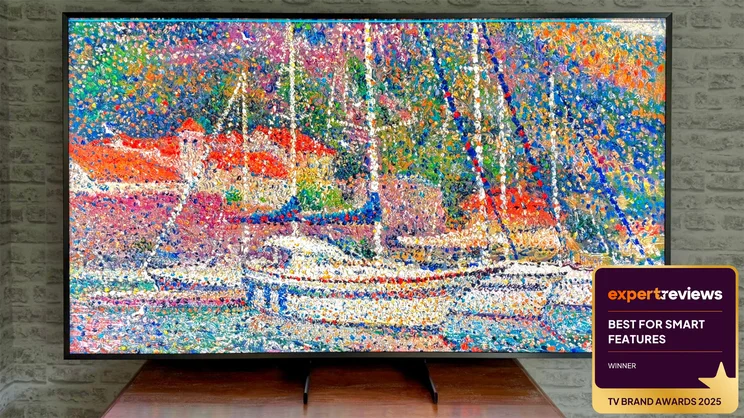
This was another tight category, with Samsung edging out LG with a total satisfaction score of 55% to 53%. Respondents were asked to rate their satisfaction with various aspects of their television’s smart performance, including ease of navigation, app availability and responsiveness, voice controls and smart home integration.
On these various fronts, it’s hard to find fault with what Samsung brings to the table. Its Tizen OS is a content-rich, intuitive platform, and many of Samsung’s newer TVs have both Bixby and Alexa built in to support voice commands. Meanwhile, the brand’s SmartThings Hub makes managing household devices a doddle from your TV. With all the boxes ticked, it’s no wonder Samsung topped the public’s list in this category.
Highly Commended: LG
The narrow margin between LG and Samsung here shows that there’s not much to choose between South Korea’s big hitters where smart features are concerned.
LG’s webOS platform is extremely popular with consumers and TV critics alike, in no small part due to the huge range of streaming services and apps it supports. Quick cards make finding and arranging content simple, while LG’s Home Hub is an effective one-stop shop for managing external smart devices.
Best for Sound Quality
Winner: Sky

Audio has long been a weakness of televisions, so it’s no great shock that Sky was the runaway winner in this category, with a total satisfaction score of 64% – a whopping 12% better than second-placed LG.
The brand’s Sky Glass TV and Glass Gen 2, the latter of which was released earlier this year, have integrated 3.1.2-channel systems that support Dolby Atmos and elevate audio to the point where you don’t need to buy a soundbar. Sky isn’t alone in producing TVs with a built-in soundbar and up-firing drivers, but it does so at a price that’s a lot more accessible than the competition, making it a smash hit with the general public.
Highly Commended: LG
Although a distant second to Sky, the audio performance of LG TVs was praised by a statistically significant percentage of respondents. More than half of those who’d bought an LG TV within the past 12 months were very satisfied with the audio quality of the set they had bought.
LG TVs certainly aren’t short of audio options, with the brand’s AI Sound Pro technology among the headline features. This optimises audio in real time based on the content that’s being watched, and is exactly the kind of option those who don’t want to make manual adjustments to their TV’s sound settings can’t resist.
Best for Gaming
Winner: Panasonic
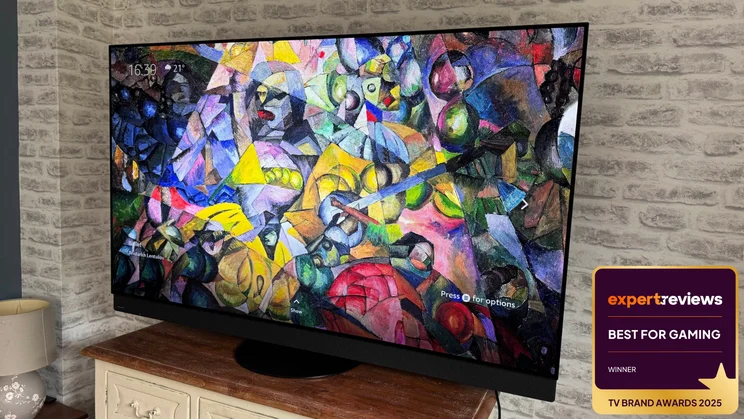
Gaming is a massive deal in the world of TV manufacturing, and Japanese brand Panasonic has been pushing hard in this space for several years. Its 2024 OLED range was the official TV partner of Diablo IV, a game that has grossed over $1bn in sales.
This year’s OLED and Mini LED flagships, the Z95B and W95B, are very well-specified on the gaming front, with refresh rates up to 144Hz, along with support for VRR and ALLM (both AMD FreeSync and Nvidia G-Sync). Panasonic also has one of the most neatly integrated in-game adjustment aids in the form of its Game Control Board feature. This, combined with Panasonic’s reputation for engrossing picture quality, makes for a gaming experience that those surveyed deemed the best in the business.
Highly Commended: Sky
This result goes to show that not everyone needs blazing-fast refresh rates and fancy features to enjoy gaming. Sky’s TVs are limited to 60Hz and don’t have any gaming-specific options aside from an Auto Low-Latency Mode (ALLM) that kicks in when a games console is connected and powered on.
Competitive gamers will also want less input lag than the 66ms we recorded when testing the Sky Glass Gen 2. However, for casual gamers and those with young families, for whom gaming is an occasional treat rather than a second job, a Sky TV will scratch the gaming itch perfectly well.
Best for Streaming
Winner: Sky

Streaming is what Sky’s Glass TVs were created for, and what they do best. Not only do they allow you to stream all of the channels included in your Sky TV package over the internet without the need for a set-top box or satellite dish, but they also support all the major streaming apps, including Apple TV+, Netflix, Disney+ and Prime Video.
Not only is streaming provision wide-ranging, but the experience is smooth and intuitive. Content categories are helpfully delineated, the EPG (electronic programme guide) makes browsing live content a breeze, and the Continue Watching option is very handy. With a total satisfaction score of 67%, the number of respondents satisfied or very satisfied with the streaming experience on their Sky TV was significantly larger than that of runner-up Panasonic (63%).
Highly Commended: Panasonic
Panasonic’s TV roster features a mixture of options that run either Amazon’s Fire TV OS or TiVo OS. Both are wonderful for streaming owing to the myriad services and platforms they support, one of which is Freely. This IPTV service from Everyone TV (the creators of Freeview) allows you to stream live and on-demand content from the UK’s biggest broadcasters without a satellite dish or aerial. It’s an ace up the sleeve for TV brands that have it on board, and we imagine its inclusion on Panasonic sets was a contributing factor to the brand’s success in this category, along with the image accuracy it’s renowned for.
Most Recommended TV Brand
Winner: Samsung
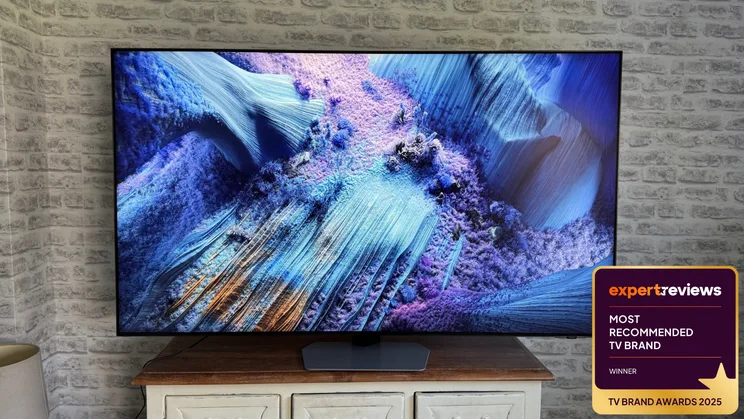
Samsung may have just missed out on the overall TV Brand of the Year award, but scored highest when respondents were asked how likely they were to recommend the brand to someone considering buying a new TV.
And with options at just about every price point, along with a reputation for quality and reliability strengthened by consumer familiarity with other Samsung product categories such as smartphones, it’s easy to understand why. We’ve reviewed four Samsung TVs so far this year (the S95F, S90F, QN90F and QN900F), and each one has earned a five-star rating. When a brand is making TVs that good, you’d expect members of the public to encourage their loved ones to get in on the action.
Highly Commended: Hisense
With a total satisfaction score of 57%, Hisense was some way behind the winners, Samsung (62%), in this category, but that’s still a very impressive result for a brand that’s only started to get a foothold in the UK market in the past decade.
Canny partnerships and sponsorship deals have undeniably helped boost awareness of the Chinese brand, but the fact that a significant proportion of those who recently bought a Hisense TV would actively recommend it shows it’s not just hype. It’s making some very capable and competitively priced TVs, and consumers are taking note.
Best All-in-One TV Experience
Winner: Sky

Sky came out on top in the Streaming and Sound Quality categories – two of the four areas that were used to decide this particular award. Picture quality and smart features were also taken into account, and Sky achieved a total satisfaction score of 59% across those four categories.
Respondents clearly valued the brand’s easy-to-operate SkyOS platform, wide range of supported services and the reasonably bright and accurate QLED panel used on both the first and second-gen Sky Glass. We imagine that they also loved the fact that buying a Sky Glass TV is so accessible, with the option to not only pay up front but also spread the cost, which adds as little as £14 per month to the monthly Sky TV package.
Highly Commended: LG
LG may not have soundbars built into any of its recent TVs, but as far as all–in-one TV experiences go, it’s a brand capable of delivering the goods. WebOS gives it a great platform from which you can stream a huge range of content, there are smart features aplenty with which to interact, picture quality is typically excellent across its range, and sound quality went down well with the consumers we surveyed, too.
Methodology
Our survey, conducted in September 2025, targeted a representative sample of 1,000 UK residents aged 18 and over. To ensure robust and reliable insights, eligibility was restricted to only those who had purchased a new TV within the 12 months prior to the survey. Furthermore, collection of regional distribution data has been obtained to reflect geographical nuances and increase data validity.
We asked respondents a total of 13 questions, capturing data on 16 TV brands. To ensure the integrity of our analysis, we applied a minimum sample size threshold, which qualified 12 brands for evaluation.
From this group, seven brands were deemed eligible for award evaluation via our relevancy benchmarks. To be eligible for analysis, brands need to hit a minimum of 15 responses; to be considered for an award, that threshold rises to a minimum of 50 responses.
Analysed brands:
- Philips
- Sky
- Toshiba
- Panasonic
- Sharp
- TCL
- LG
- Hisense
- Samsung
- Sony
- JVC
- Roku
- Bush
Eligible brands:
- Sky
- Toshiba
- Panasonic
- LG
- Hisense
- Samsung
- Sony

